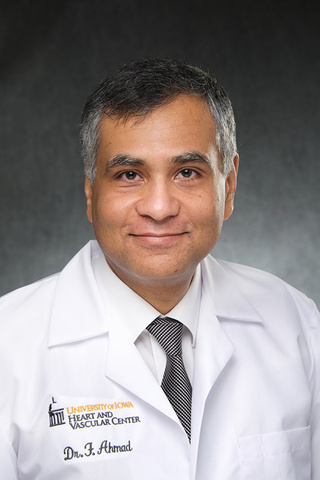To improve care for people with inherited heart problems, the American Heart Association (AHA) is recommending the creation of clinical programs that combine expertise in cardiovascular medicine with expertise in the genetics of heart disease.
In a paper published in the Association’s journal Circulation: Genomic and Precision Medicine, the AHA says these interdisciplinary programs would take advantage of increased availability of cheaper, faster genetic testing and better understanding of how various heart conditions are inherited to improve care for patients. These programs can also assess patient’s family members without current heart problems and take steps to reduce their risk.

Cardiovascular genetics is increasingly used to care for patients with multiple inherited heart conditions. Challenges exist with rapid growth in this area of care, including the interpretation of genetic test results and the evaluation, counseling, and management of genetically at-risk family members who have inherited the genetic alteration that increases their predisposition to a certain disease even if they have not yet shown signs or symptoms.
Ahmad directs the University of Iowa Hospitals & Clinics Cardiovascular Genetics Program, which is one of a few broad-based cardiovascular genetics programs that currently exist at academic centers. The AHA statement says that specialized genetic programs like these have the capability to integrate clinical cardiovascular findings—including those obtained from physical examination, imaging, and functional assessment—with genetic information to improve diagnosis, prognosis, and generational family testing to identify and manage risk and in certain cases to provide genotype-specific therapy.
A benefit for younger patients
“Inherited cardiovascular disorders are the leading cause of sudden death in young people. Identifying at-risk patients and family members is often life-saving,” Ahmad says. “Establishing specialized cardiovascular genetics programs could significantly advance our ability to care for people with inherited heart conditions and their healthy family members. These programs will also become key places for the genetics training of internal medicine and pediatric residents and cardiology fellows.”
Other types of genetic diseases that might be diagnosed and treated at a specialized program include those that result in abnormally high levels of bad cholesterol, neuromuscular disorders such as Marfan syndrome that can weaken the aorta, and abnormalities of heart rhythm that can raise the risk of sudden death.
Recommendations in the AHA statement
The statement outlines these recommendations for a quality specialized program:
- Leadership from a cardiologist well-versed in genetics or a geneticist well-versed in cardiovascular medicine
- Core personnel including cardiologists, medical geneticists, genetic counselors, nurse managers and clinic coordinators
- Facilities for several types of cardiac imaging and people with the expertise to interpret the findings and recognize uncommon heart conditions
- Subspecialists and facilities to offer the invasive procedures necessary to diagnose and treat electrical problems in the heart, to assess heart function, to surgically correct structural problems of the heart, valves and aorta, and to perform heart transplants
- Genetic testing and counseling
- Support from other specialties such as sleep medicine, behavioral medicine, nutrition, social work, and exercise physiology
The statement’s authors
Co-authors on the statement include Elizabeth M. McNally, MD, PhD, Vice-chair; Michael J. Ackerman, MD, PhD; Linda C. Baty, NP; Sharlene M. Day, MD; Iftikhar J. Kullo, MD; Peace C. Madueme, MD, MS; Martin S. Maron, MD; Matthew W. Martinez, MD; Lisa Salberg; Matthew R. Taylor, MD, PhD; and Janel E. Wilcox, MS, CGC, on behalf of the American Heart Association Council on Genomic and Precision Medicine; Council on Arteriosclerosis, Thrombosis and Vascular Biology; Council on Basic Cardiovascular Sciences; Council on Cardiovascular and Stroke Nursing; Council on Clinical Cardiology; and Stroke Council.